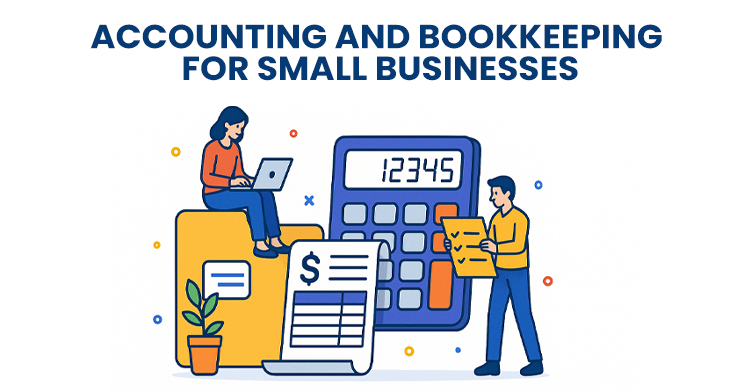How to Read a Balance Sheet Like an Expert

Master balance sheets with ease! Learn how startups can use expert Accounting and bookkeeping services for startup to understand business finances.
Understanding a balance sheet is crucial for any business owner, especially startups aiming for financial success. A balance sheet provides a snapshot of your company’s financial health, showing assets, liabilities, and equity. With the right accounting and bookkeeping services for startups, you can decode this document like a pro and make smarter business decisions.
In this guide, we’ll break down how to read a balance sheet and explain How startup accounting services can help you analyze financial data effectively.
Accounting and Bookkeeping Service for Startups: Mastering Balance Sheets

A balance sheet follows a simple equation:
Assets = Liabilities + Equity
Here’s how to interpret each section with the help of professional accounting for startups:
1. Understanding Assets (What Your Business Owns)
Current Assets (Short-Term)
- Cash & Bank Balances – Liquidity available for daily operations.
- Accounts Receivable – Money owed by customers (track efficiently with Xero accounting software).
- Inventory – Goods ready for sale (critical for retail startups).
Fixed Assets (Long-Term)
- Property & Equipment – Physical assets like office space or machinery.
- Intangible Assets – Patents, trademarks, or software licenses.
Expert Tip: Use QuickBooks for small business to track asset depreciation accurately.
2. Analyzing Liabilities (What Your Business Owes)
Current Liabilities (Short-Term Debts)
- Accounts Payable – Unpaid bills to suppliers.
- Short-Term Loans – Debts due within a year.
Long-Term Liabilities
- Business Loans – Payable over several years.
- Lease Obligations – Long-term rental agreements.
Why It Matters: High liabilities without enough assets can signal financial trouble.
3. Evaluating Equity (Owner’s Stake in the Business)
- Retained Earnings – Profits reinvested in the business.
- Shareholder Contributions – Capital invested by owners.
Key Insight: Positive equity means your business is growing sustainably.
How Professional Startup Accounting Services Help

Reading a balance sheet is easier with expert support. Ceptrum offers specialized tax services for startups and small company bookkeeping, ensuring your financial statements are accurate and compliant.
Want to decode your balance sheet like an expert?
Let Ceptrum handle your startup’s accounting needs!
Conclusion
A balance sheet is more than just numbers—it’s a roadmap to your startup’s financial stability. By understanding assets, liabilities, and equity, you can make informed decisions. Pair this knowledge with reliable accounting and bookkeeping services for startups, and you’ll have a clear financial picture for growth.
FAQs
1. Why is a balance sheet important for startups?
It shows financial health, helping startups track growth, manage debt, and attract investors.
2. What’s the best accounting software for balance sheet analysis?
Xero accounting software and QuickBooks for small business provide detailed financial reports.
3. How often should I review my balance sheet?
At least quarterly, but monthly checks are ideal for better cash flow management.
4. Can a startup survive without professional accounting help?
Yes, but expert startup accounting services prevent costly mistakes and ensure compliance.
5. How does Ceptrum assist with balance sheet management?
Ceptrum offers tax services for startups and small company bookkeeping, ensuring accurate and actionable financial insights.

